SVO 170098: Digital Safety Passport
The Netherlands has more than 400 BRZO companies. In order to carry out work at these high-risk locations, employees must be aware of the safety risks. They must also know where their authority lies for controlling the risks. For these reasons, strict requirements are set for safety training for employees. Anyone who is indirectly involved in risky processes at BRZO sites must also meet the strict safety requirements. This applies, for example, to visitors or personnel hired for maintenance work.
The registration for compliance with these requirements and often also company-specific requirements is carried out by each company in the chain in its own way and with its own system. Often, registration takes place manually with every access or maintenance job. There is virtually no coordination between the registrations of the various companies. As a result, the information is often incomplete and not up to date. In addition, it costs maintenance companies and their employees an unnecessary amount of time and capital to repeatedly demonstrate that they comply with the requirements. The internationalisation of the labour market has made compliance with safety requirements even more complex.
Until now, safety training has only been recorded in a paper safety passport, which is susceptible to fraud. This was introduced in 1998 on the initiative of the then Europoort Botlek Interests Foundation after a number of serious incidents occurred in that region. The paper safety passport is now also used in other regions and has become a national standard for registering safety training. However, there is a need for a digital security passport that is less susceptible to fraud and contains reliable personal data. No records are kept of the number of paper security passports issued. Since 2001, approximately 525,000 passports have been produced and issued unregistered. In the desired situation, the digital passport will be issued in a registered form.
Purpose
Developing a digital security passport to replace the current paper security passports.
The digital safety passport will have a print run of 20,000 Digital Safety Passports (DSPs). This introduces a new method of registration for working at and entering BRZO high-risk locations.
The DSP enables the industry to link future innovations in connection with competence management to people. In the future, the registration of work carried out at high-risk locations can contribute to the demonstrable professionalisation of safe working in the BRZO production and maintenance chain.
Expected / obtained result
There are now more than 1100 companies that together have approximately 17,000 DSP users. Nationwide, ±30 DSP acceptance points have been realised.
The DSP has identity and information about competence and education inextricably linked to the person via a digital smart card. The DSP of maintenance personnel gives production companies a reliable answer to the questions "Is the person who he says he is?" and "Can he do what he says he can?".
The paper security passport, which is prone to fraud, has been replaced by a digital smart card. This stores biometrically secured personal data and the courses taken. BRZO companies can scan the digital smart card at any time, after approval by the holder, and thus verify the reliable and verified safety data of maintenance personnel.
The introduction of the strictly personal DSP ensures increased safety awareness. Only employees with verified and valid safety training in combination with a valid ID can enter the premises and start working. The risk of maintenance workers going to work without valid training is therefore greatly reduced.
Furthermore, DSP enables more targeted further training by adding or linking registers to the current basic data. The smart card indicates when training courses or specific certifications expire. In this way, DSP holders can be warned in time and ensure that they continue to meet the safety requirements.
| Project code | SVO 170098 |
|---|---|
| Committed grant | € 500.000 |
| Status | Completed |
| Project period | December 2016 - December 2018 |
| Partnership | Sector partnership |
| Project type | Process and organisational innovation (A) |
| Project themes | Safety culture
Chain responsibility Safe business parks and clusters |
| Penholder | Secure Logistics |
| Project participants | Akzo Nobel Industrial Chemicals BV
Deltalinqs Branch Association of Service Companies for the Process Industry (VOMI) |


